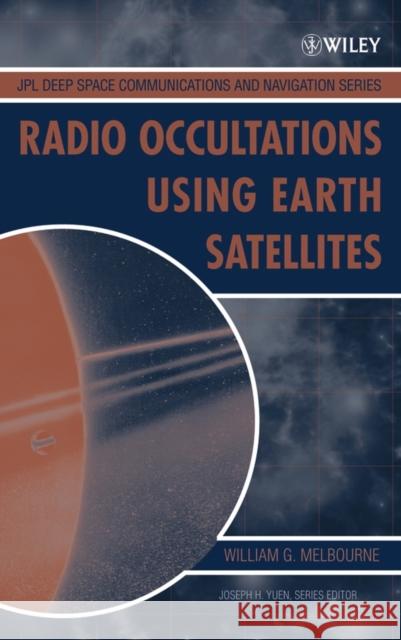Radio Occultations Using Earth Satellites: A Wave Theory Treatment » książka
Radio Occultations Using Earth Satellites: A Wave Theory Treatment
ISBN-13: 9780471712220 / Angielski / Twarda / 2004 / 656 str.
the wave theory foundations of today's radio occultation techniques
Forty years ago, the premier radio occultation problem was how to profile the atmosphere and radius of Mars using signals sent by the Mariner 4 spacecraft. Researchers then could rely on ray theory-based techniques for accurate analysis of the thin, uniform Martian atmosphere. Today's radio occultation challenges mostly involve communications platforms-and related data, instrument systems, and applications-in the Earth's own atmosphere. To deal with the density and complexity of this multilayered medium, an analytical framework that goes beyond ray theory is needed.
Setting the cutting edge for the field, Radio Occultations Using Earth Satellites: A Wave Theory Treatment develops a purely wave-theoretic approach to occultation analysis. This approach yields more nuanced results than either ray or hybrid (ray/wave) methodologies offer, and proves suitable for the many variables at work in today's problems.
This groundbreaking text provides:
* An introduction to the general theory of radio occultations
* Development of ray theory and scalar diffraction treatments of radio propagation processes
* Development of a wave theoretic treatment of the above wave propagation processes
* The correspondence between wave and ray theories
* A discussion of how to use a wave-theoretic approach to infer the refractive properties of the propagation medium from a time series set of observations of the propagated wave's phase and amplitude
A comprehensive resource that clearly defines the latest topics and methodologies, Radio Occultations Using Earth Satellites is a must-have text for engineers, scientists, students, and managers in satellites communications, navigation, deep space and planetary exploration, aerospace, atmospheric science, physics, and engineering.
The Deep Space Communications and Navigation Series is authored by scientists and engineers with extensive experience in astronautics, communications, and related fields. It lays the foundation for innovation in the areas of deep space navigation and communications by disseminating state-of-the-art knowledge in key technologies.











